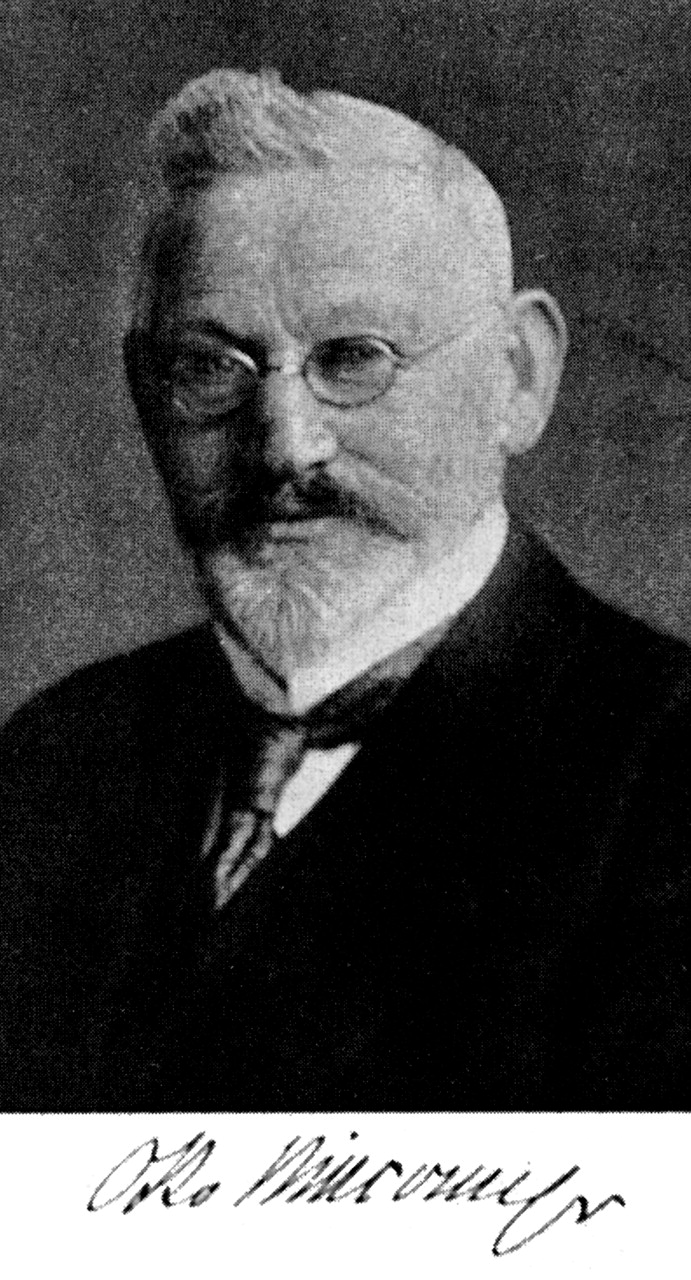As we learn more about the individuals who populate the history of psychiatry, we obtain a better understanding of many of our modern clinical and theoretical ways of thinking.
Otto Binswanger is an excellent example: he and three members of his family have influenced scientific progress in neurology and psychiatry (as well as, in part, philosophy) from about 1850 to the present day.
Otto Binswanger was born in Münsterlingen, Switzerland, on October 14, 1852. His father, Ludwig Binswanger (1820–1880), who had a medical and philosophical education, was the founder of a private mental asylum in Kreuzlingen (1857). Ludwig’s elder son and Otto’s brother Robert Binswanger (1850–1910) became Ludwig’s successor as director of the asylum. One of Robert’s sons, Ludwig Binswanger (1881–1966), who also worked in Kreuzlingen, introduced the concept of “daseinsanalyse,” which had a significant impact on the theoretical basis of psychiatry and was closely connected with the philosophy of Edmund Husserl and Martin Heidegger.
Otto Binswanger studied medicine in Heidelberg, Strasbourg, and Zurich. In 1880, after having worked as a senior assistant at the Institute of Pathology in Breslau, he accepted Carl Westphal’s offer to come to Charité Hospital in Berlin. At the age of 30, Binswanger was appointed professor of psychiatry and director of the mental asylum in Jena, a position he would hold for 37 years (1882–1919). In Jena, he attracted distinguished co-workers, such as Theodor Zlehen (1862–1950), Oskar Vogt (1870–1959), Korbinian Brodmann (1868–1918), and Hans Berger (1873–1941). After retiring in 1919, Binswanger moved back to Kreuzlingen, where he died on July 15, 1929, at the age of 76.
Binswanger was part of the strong neuropsychiatric movement of his time, but he never was inclined to speculate on what critics would later call the “mythology of the brain.” His scientific point of view was a broad one and so were his fields of interest. His pathological histology studies attempted to define similarities and differences between progressive paralysis and other kinds of organic brain disease. In 1894, he described a new clinical and neuropathological picture that he termed “encephalitis subcorticalis chronica progressiva,” an illness that would later be named after him (Binswanger’s disease). He conducted studies on epilepsy, and his textbook Epilepsy (1899) became a standard text. His studies about neurasthenia (1896) and hysteria (1904) became as widely known as his neuropathological work, and his chapter on “General Psychiatry,” from a 1904 textbook of psychiatry on which he worked with Ernst Siemerling in Jena, emphasized a nondogmatic view of basic psychopathological and methodological issues.


